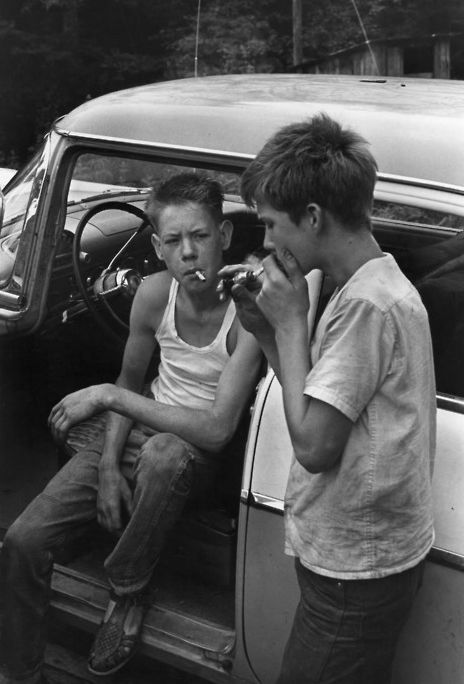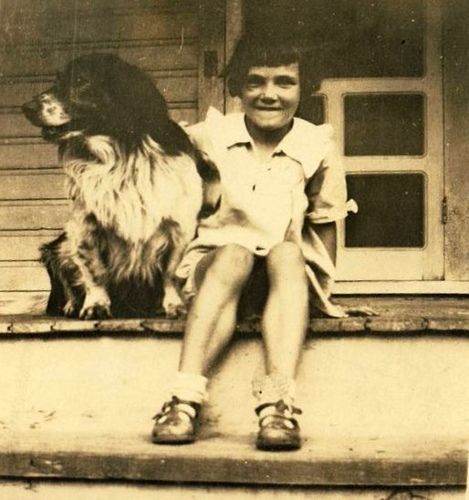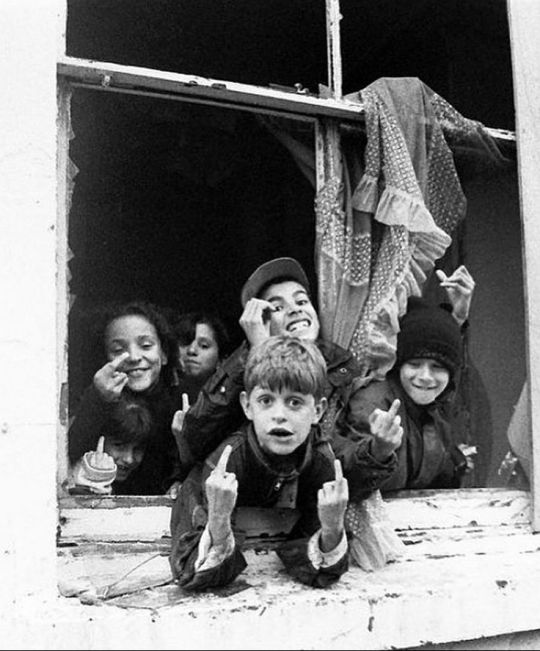#morality
Explore tagged Tumblr posts
Text

6K notes
·
View notes
Text

some very good tags by @e-the-village-cryptid
Btw, that idea that privilege makes you morally evil and suffering makes you morally good is just repackaged versions of the Christian concepts of the evils of luxury and the holiness of martyrdom. Hope this helps!
39K notes
·
View notes
Text









"The children are always ours, every single one of them, all over the globe; and I am beginning to suspect that whoever is incapable of recognizing this may be incapable of morality." - James Baldwin
28 notes
·
View notes
Text
“it’s immoral to write/read shota/loli” “it’s morally incorrect to write/read incest” “i don’t harass pro/darkshippers but it’s morally wrong”
who are you to decide that?
something being morally correct/incorrect only works if everyone subscribes to an absolute moral, which is simply impossible. i won’t have the same morals as you, and you won’t have the same morals as someone else, and so on and so forth. even if everyone were to subscribe to an absolute moral, who are you to decide what that moral should be?
i might say it’s immoral to eat mushrooms, because i don’t like mushrooms. someone else might say it’s immoral to be queer, because their religion is against it. no one can decide what one moral everyone has to follow, because no one’s morals are the same. not only that, but everyone’s experiences are different, so everyone’s morals are different.
it may be your personal opinion that something is morally wrong, but that does not make it fact.
#proshippers are welcome#op is proship#proud proshipper#proshippers are valid#op is a proshipper#proshipper safe#proshippers please interact#proshipper#profiction#profic#op is a darkshipper#antishippers dni#antis dni#fuck antishippers#anti anti#shotac0n#lolic0n#morality#don’t fw me i took a philosophy and ethics a-level course before i dropped out of college
95 notes
·
View notes
Text
Call me crazy, but I think that just makes them hypocrits also. You either truly love a being, or you eat its babies. If you eat the animals you raised (or its babies) while claiming to love them, if you "carry their young for miles on [your] own back" but then eat those young, then that just makes you, from their perspective, one of those faux-kindly horror monsters. The Promised Neverland anime is the closest media comparison I can think of atm, but it also seems not unlike the witch who lures Hansel and Gretel with kindness and candy while intending to eat them, or like the real-life people who claim to love big wild animals, like bears, and yet keep them confined in tiny cages in their homes. Or like circus owners who claimed to love their circus animals even as they abused them for profit in their circus. Is love only the feeling experienced by the lover, or is it the choices and actions you take to demonstrate it? If a man beats his children, then cries a lot and takes them out to ice cream and swears up and down never to do it again, and then does it again, and again: does he love his children? If someone cares for and protects and hugs their spouse and family for a decade or more, and attends all the ball games, and pays for their kids' college, and then one day snaps and murders their entire family: was their love real? If there is ever love of some kind mixed in to relationships like these, I don't think it counts for much.
Even when the "inevitable" betraying slaughter is so culturally normalized (from the human perspective anyways) in human and farm animal relationships. But, to be fair, this admittedly isn't dissimilar to how I feel about God as described in the Old Testament. Claims to love humans, but creates their nature and their environment and sets up a situation in which they will inevitably 'sin', then blames them for it. Often punishes everyone collectively for the actions of others, where "punishment" can be slaughtering all the babies of Egypt or genociding the entire world via flood. And so on... So, I suppose the comparison to God does make a kind of sense, I just don't see either shepherd or God as morally righteous in this kind of scenario.
I have been a sheep caretaker for like two days and already I'm like. Wow. I get it.
I get why these were some of the earliest mammals to ever be domesticated. They look up to humans with this sort of dumb but all at once innocent and pure and trusting expression. They're happy to see you. They follow you around. They like to be rubbed under their chins. Maybe its just some latent Scottish highland shepherd DNA I still have in me but I look at my sheep charges and suddenly I see why the love of God for humanity is so often described as a shepherd and his sheep. I'd fight a wolf for these guys. I'd go way the Hell out of my way for them. I'd carry their young for miles on my own back.
#animal rights#farm animals#argument#opinions#negative opinion#anti christianity#I don't actually have anything against Christians (who aren't forcing their beliefs on everyone else) or Muslims or Jews or whoever#I just have some objections to the literal text of the bible and how I am told it should be interpreted#vs how I would interpret the same situations in... literally any other book ever#also I'm trying to find tags that will let people block this post so they don't yell at me (thus the anti christianity tag)#though I'll just be ignoring anyone who yells at me for this anyways just fyi so don't bother#if this upsets you and you feel like slinging insults then please just block me and move on#morality#morals#ethics#I bet a lot of people block those tags on here actually#given I think this website has a lot of people wanting to share their opinions (like me apparently) but perhaps not so many people who#actually want to read other peoples' opinions on serious topics that they don't already agree with anyways#I blocked the politics tag for that reason#it was just post after post by people telling me shit I already know damn well#plus the occassional post that distracted me from actually enjoying my day and tempted me to Argue on the Internet^TM instead#honestly writing this post was probably not the best use of my time#but oh well#I guess putting so many tags on this might backfire by putting it in front of more eyeballs#oh well#operation: ignore replies
179K notes
·
View notes
Text

moral crisis
#fanart#sanders sides#thomas sanders#roman sanders#patton sanders#janus sanders#morality#immorality#even i felt guity while drawing this#tss patton#tss roman#tss janus#tss sides
1K notes
·
View notes
Text
"Oh so you think murder is okay now? You support MURDER?"
Yes. Full stop. Ive spent my entire life watching school shootings happen, seen my country blow billions of dollars on unnecessary wars, and stood in the middle of peaceful protests that get mocked and ignored. I did everything right, and learned that whats "right" simply makes you easier to ignore by the people who hold power.
I grew up in the sweet and docile "Babysitters Club" era, and have watched the next generations cut their teeth on "Hunger Games" and all kinds of dystopian lit. What did you all think was going to happen, when you kept tightening the noose on kids who were reading about revolution between active shooter drills?
I dont like murder, nor do I think most people do. But my god, you cant desensitize a nation full of people and still expect them to mourn their oppressors.
#united healthcare#brian thompson#dystopia#gun violence#oligarchy#anti capitalism#peaceful protest#doesnt work#morality#luigi mangione
3K notes
·
View notes
Text
We ask your questions so you don’t have to! Submit your questions to have them posted anonymously as polls.
#polls#incognito polls#anonymous#tumblr polls#tumblr users#questions#polls about ethics#submitted may 10#ethics#morals#morality
3K notes
·
View notes
Text
Again, speaking as someone with scrupulosity OCD and anxiety, this whole entire mentality of "if I vote for a presidential candidate, then I, personally am responsible for each and every bad thing they do" is essentially a form of catastrophic, polarized thinking. It's a super unhealthy way of thinking that leaves you unable to meaningfully navigate through life a lot of the time. And while you might feel morally clean, it's actually an incredibly dysfunctional way to live because you just won't take action when it could really matter, or the actions you do take don't actually have a substantial chance of changing things.
Like refusing to vote, or voting third-party even though you know the odds of a third party candidate making it are pretty much nil (or because you've convinced yourself it could totally work if Everyone Just - even though we all know there is no point in history when Everyone Just), that's dysfunctional behavior. There's no getting around it. It's dysfunctional behavior.
#politics#voting#us politics#american politics#uspol#moral ocd#scrupulosity#scrupulosity ocd#morality#purity#purity politics#innocence
2K notes
·
View notes
Text
I used to like "I Won't Back Down" by Tom Petty and the Heartbreakers until I realised it has no inherent moral worth. From Amazing Spider-Man #537:

It's great because it's Captain America, you know what he stands for. Now imagine the same speech, but it's The Red Skull.
We've Made Changing Your Mind Look Like a Flaw Instead of a Virtue
The internet has taught people to archive your opinions and weaponize your growth. If you evolve, you're a flip-flopper. If you admit uncertainty, you're weak. If you take time to rethink, you're stalling.
So people fake certainty to avoid punishment.
Intellectual honesty, though, requires change. If your views haven't changed in ten years, that says less about your clarity than it says about your lack of reflection.
1K notes
·
View notes
Text
Okay listen so we’ve all heard about how ParkCiv is a really good analogy for late stage capitalism that has been simplified into an easy to understand in an easily digestible format for younger audiences to learn and understand, but CAN WE TALK ABOUT THE INTENSE MORAL QUESTION THAT PVPCIV PRESENTS?
What is the value of a human life? Is the suffering of one person acceptable if it means a life of peace for the rest of the world?
Evbo originally tried to get out of his first 1v1 by claiming that he has a wife and kids, which implies these family units DO exist in some way.
While the people we see that are eager for “The Chosen One” to appear so they can gain everlasting life are all fighters, not everyone who lives in this world is on their own. There are likely mothers, fathers, children, natural leaders, amazing people that are clinging onto life by only a few swings of the sword. It’s not just violent fighters, it’s likely normal people trying to simply get by day to day life.
Is it selfish of them to want to be there for their families, friends, etc.? To fear death? Is it selfish of Evbo to try to escape his fate of being essentially a pig for the slaughter forever?
Is world peace worth the suffering of a single person?
If one person has to suffer for an eternity to bring peace to his civilization, someone with no friends, no family, no ties to the world, is that okay?
Is it okay to torture someone in any circumstance?
I don’t have any clue whether this kind of thought was intentional, but this is SUCH a vivid and interesting moral dilemma. It’s the trolly problem made physical. Of course everyone wants to say that it’s never okay to facilitate the suffering of another individual, but in a world where your continued death spreads life and allows families and friends to remain together for the entire natural lives, would you even be able to continue saying that? Or would you be willing to accept that this is the price, and an innocent person has to pay it.
Would you partake? Observe? Fight back?
It’s SO FASCINATING and I am IN LOVE
And it’s once again presented in such a simple and easily understandable format that it is available for everyone to consider.
GOD my brain has melted into a gooey puddle on the floor please send help
#parkour civilization#pvp civilization#parkciv#pvpciv#evbo#Minecraft#pvp#morality#what the heck is this why is it so good Evbo what are you doing to me#trolly problem
1K notes
·
View notes
Text
"The idea of reforming Omelas is a pleasant idea, to be sure, but it is one that Le Guin herself specifically tells us is not an option. No reform of Omelas is possible — at least, not without destroying Omelas itself:
If the child were brought up into the sunlight out of that vile place, if it were cleaned and fed and comforted, that would be a good thing, indeed; but if it were done, in that day and hour all the prosperity and beauty and delight of Omelas would wither and be destroyed. Those are the terms.
'Those are the terms', indeed. Le Guin’s original story is careful to cast the underlying evil of Omelas as un-addressable — not, as some have suggested, to 'cheat' or create a false dilemma, but as an intentionally insurmountable challenge to the reader. The premise of Omelas feels unfair because it is meant to be unfair. Instead of racing to find a clever solution ('Free the child! Replace it with a robot! Have everyone suffer a little bit instead of one person all at once!'), the reader is forced to consider how they might cope with moral injustice that is so foundational to their very way of life that it cannot be undone. Confronted with the choice to give up your entire way of life or allow someone else to suffer, what do you do? Do you stay and enjoy the fruits of their pain? Or do you reject this devil’s compromise at your own expense, even knowing that it may not even help? And through implication, we are then forced to consider whether we are — at this very moment! — already in exactly this situation. At what cost does our happiness come? And, even more significantly, at whose expense? And what, in fact, can be done? Can anything?
This is the essential and agonizing question that Le Guin poses, and we avoid it at our peril. It’s easy, but thoroughly besides the point, to say — as the narrator of 'The Ones Who Don’t Walk Away' does — that you would simply keep the nice things about Omelas, and work to address the bad. You might as well say that you would solve the trolley problem by putting rockets on the trolley and having it jump over the people tied to the tracks. Le Guin’s challenge is one that can only be resolved by introspection, because the challenge is one levied against the discomforting awareness of our own complicity; to 'reject the premise' is to reject this (all too real) discomfort in favor of empty wish fulfillment. A happy fairytale about the nobility of our imagined efforts against a hypothetical evil profits no one but ourselves (and I would argue that in the long run it robs us as well).
But in addition to being morally evasive, treating Omelas as a puzzle to be solved (or as a piece of straightforward didactic moralism) also flattens the depth of the original story. We are not really meant to understand Le Guin’s 'walking away' as a literal abandonment of a problem, nor as a self-satisfied 'Sounds bad, but I’m outta here', the way Vivier’s response piece or others of its ilk do; rather, it is framed as a rejection of complacency. This is why those who leave are shown not as triumphant heroes, but as harried and desperate fools; hopeless, troubled souls setting forth on a journey that may well be doomed from the start — because isn’t that the fate of most people who set out to fight the injustices they see, and that they cannot help but see once they have been made aware of it? The story is a metaphor, not a math problem, and 'walking away' might just as easily encompass any form of sincere and fully committed struggle against injustice: a lonely, often thankless journey, yet one which is no less essential for its difficulty."
- Kurt Schiller, from "Omelas, Je T'aime." Blood Knife, 8 July 2022.
#kurt schiller#ursula k. le guin#quote#quotations#the ones who walk away from omelas#trolley problem#activism#introspection#discomfort#reform#revolution#suffering#ethics#morality
11K notes
·
View notes
Text
"I made gentle fun of [John] Woolman for his guilt about reading books and going sledding with his childhood friends. But all of his childhood friends grew up to own or trade slaves. Of course he’s skeptical of nice food and nice clothes, sleighs and ice skates. His friends, good people, people he loved, liked these seemingly innocent pleasures—and so to pay for them, they bought people who were violently kidnapped away from their families and carried to a foreign land, forced them to work from dawn to dusk, underfed them and dressed them in rags, sold their children away from them, tortured them, and supported laws that ensured that all this would continue forever. From Woolman’s point of view, to oppose slavery, you have to hate torturing innocent people more than you like ice skating. It turns out this is very hard and people mostly don’t."
-Ozy Brennan, On John Woolman
2K notes
·
View notes
Text

288 notes
·
View notes
Quote
We are all unused to living, we are all crippled, each one of us more or less. We are so unused to it that we straight away feel some kind of loathing towards real ‘lively life’ and so we cannot stand it when we are reminded of it. We have indeed reached such a point that we almost consider real ‘lively life’ to be labour, almost like service, and we are all agreed among ourselves that it is better left in books.
Fyodor Dostoyevsky, Notes from Underground
535 notes
·
View notes